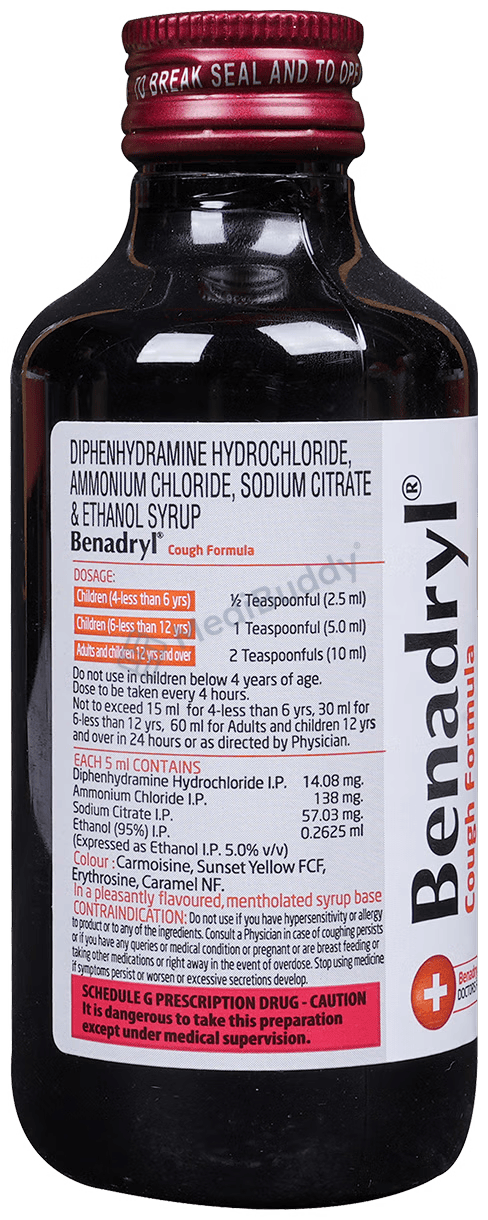Benadryl Syrup
By Benadryl
Rx
150ml Syrup in a Bottle

Composition
Diphenhydramine(14.08mg/5ml) + Ammonium Chloride(138mg/5ml) + Sodium Citrate(57.03mg/5ml)

Manufacturer - JNTL Consumer Health (India) Pvt. Ltd.
LBS Marg Mulund (West), Mumbai 40080

Expires on or after
November, 2026

liver
Limited information is available regarding the use of Benadryl Syrup in patients with liver disease. It is important to consult with your doctor before using this medication if you have any liver-related issues. Your healthcare provider can offer guidance tailored to your specific situation to ensure the safe and appropriate use of Benadryl Syrup.

kidney
Benadryl Syrup may not be safe for people with kidney disease and is advised to be avoided. Please seek advice from your doctor regarding the use of this syrup for kidney-related concerns.

alcohol
It is not safe to drink alcohol while taking Benadryl Syrup. It's important to avoid alcohol when using this medication. Caution should be taken during pregnancy when using Benadryl Syrup.

driving
Caution should be taken while driving if Benadryl Syrup causes reduced alertness, vision changes, sleepiness, or dizziness. Avoid driving if experiencing these symptoms.

pregnancy
Benadryl Syrup should be avoided during pregnancy as studies have shown significant harmful effects on the developing baby in both pregnant women and animals. Seek medical advice before using.

breastfeeding
During breastfeeding, it is unsafe to use Benadryl Syrup as it may cause toxicity to the baby.
| Habit Forming | No |
| Chemical Class | - |
| Therapeutic Class | RESPIRATORY |
| Action Class | - |
₹139.5
₹155
10% OFF
Inclusive of all taxes
Content verified by

Dr. Upasana Bhatia
MBBS - General Medicine
Last update on 01-Oct-2024




